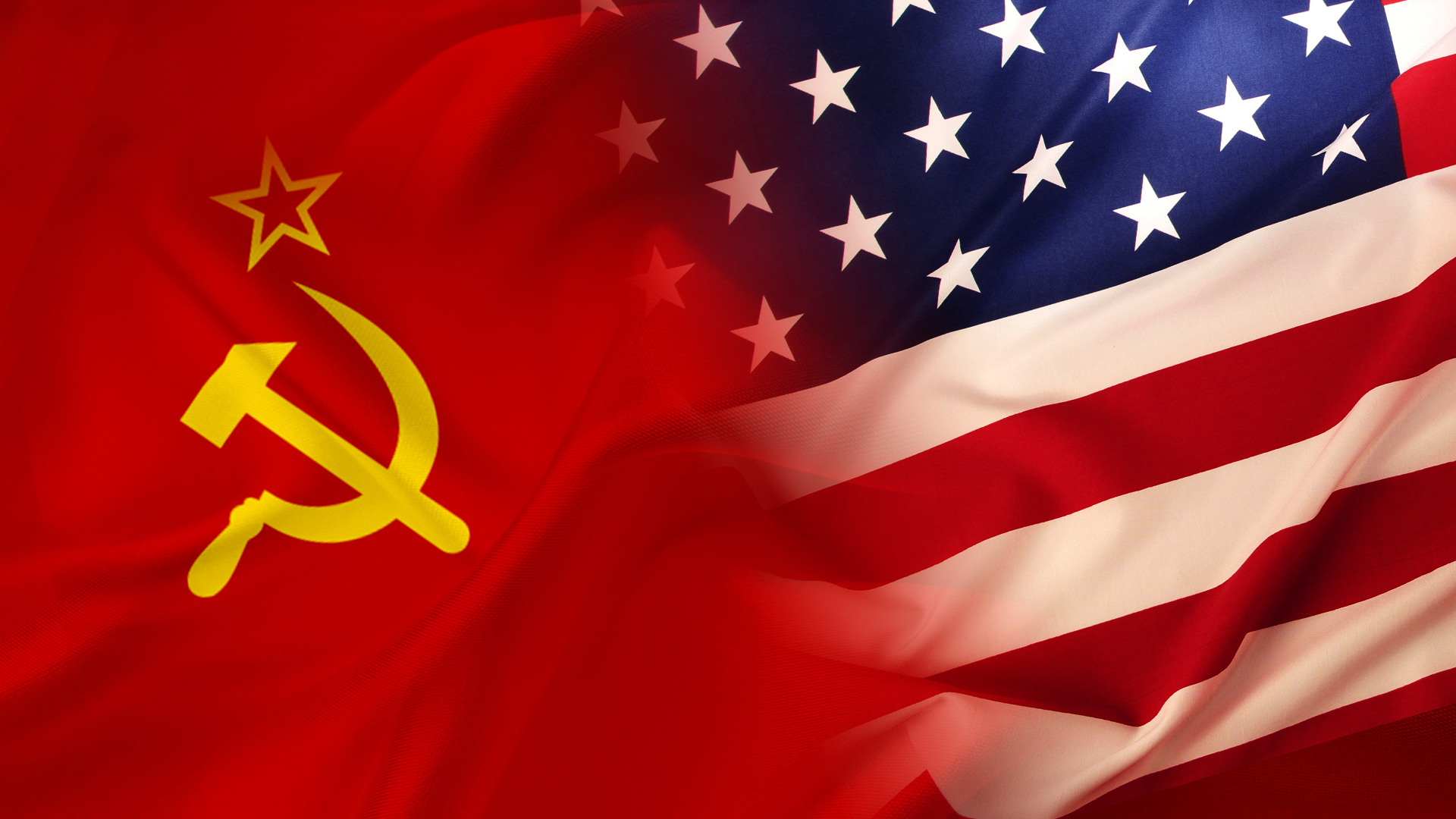U.S.-China Relations: Breakdown And The Looming Cold War

Table of Contents
The Economic Rivalry: A Key Driver of Tension
The economic relationship between the U.S. and China, once a source of mutual benefit, has become a major battleground. Competition, fueled by trade disputes and a technological arms race, is driving a wedge between the two superpowers.
Trade Wars and Tariffs
The history of trade disputes between the U.S. and China is long and complex. The Trump administration initiated a trade war, imposing significant tariffs on a wide range of Chinese goods. These actions were met with retaliatory tariffs from China, creating a cycle of escalating tensions.
- Impact on global markets: The trade war disrupted global supply chains, increased prices for consumers, and slowed economic growth.
- Retaliatory measures: China targeted key U.S. agricultural products and other goods, impacting American farmers and businesses.
- Effects on specific industries: Industries like manufacturing, agriculture, and technology suffered significantly due to the trade war.
Technological Competition
The competition for technological dominance is arguably the most critical aspect of the U.S.-China economic rivalry. Both nations are investing heavily in research and development in crucial areas like 5G, semiconductors, and artificial intelligence (AI).
- Investment in R&D: Billions of dollars are being poured into developing cutting-edge technologies, fueling a fierce race for supremacy.
- Intellectual property theft concerns: The U.S. has repeatedly accused China of stealing intellectual property, undermining American innovation.
- Export controls and sanctions: Both countries are increasingly using export controls and sanctions to limit access to sensitive technologies.
Investment Restrictions and De-coupling
Growing concerns about national security and economic dependence are prompting countries to restrict investments from China and actively pursue "decoupling" – reducing their reliance on the Chinese economy.
- Examples of specific policies: The U.S. has imposed restrictions on Chinese investment in sensitive sectors, while other countries are reviewing their own policies.
- Implications for global supply chains: De-coupling efforts could lead to the fragmentation of global supply chains, increasing costs and potentially hindering economic growth.
Geopolitical Tensions and Military Buildup
Beyond economics, geopolitical tensions and a significant military buildup are exacerbating U.S.-China relations. Competition for global influence is becoming increasingly overt.
South China Sea Disputes
China's assertive actions in the South China Sea, including island building and military deployments, are a major source of friction. The U.S. and its allies conduct freedom of navigation operations to challenge these claims.
- Freedom of navigation operations: These operations are designed to assert the right of free passage in international waters.
- Island building: China's construction of artificial islands in the South China Sea has raised concerns about its military intentions.
- Military presence: The increased military presence in the region heightens the risk of accidental conflict.
Taiwan
The issue of Taiwan is a potential flashpoint. China considers Taiwan a breakaway province and has not ruled out the use of force to achieve reunification. The U.S. maintains a policy of "strategic ambiguity," neither confirming nor denying whether it would intervene militarily.
- U.S. arms sales to Taiwan: The U.S. continues to supply Taiwan with defensive weapons, angering China.
- Potential for conflict: Any move by China towards Taiwan could trigger a major military confrontation.
- International responses: A conflict over Taiwan would have significant global consequences and could involve other nations.
Global Influence and Alliances
Both the U.S. and China are vying for influence in regions like Africa and Latin America, forming competing alliances and engaging in diplomatic initiatives.
- Examples of diplomatic initiatives: Both countries actively engage in diplomatic efforts to build relationships with other nations.
- Economic partnerships: Economic partnerships and aid programs are used to expand influence and secure resources.
- Military exercises: Military exercises and deployments are employed to project power and deter adversaries.
Ideological Differences and Human Rights Concerns
Fundamental differences in political systems and values further complicate U.S.-China relations. Human rights concerns add another layer of complexity to the already strained relationship.
Democratic Values vs. Authoritarianism
The contrast between the U.S.'s democratic values and China's authoritarian system is a major source of tension. This difference in ideology underlies many of the conflicts between the two nations.
- Human rights abuses in Xinjiang and Hong Kong: Concerns over human rights abuses in Xinjiang and Hong Kong have led to international condemnation of China.
- Freedom of speech and press concerns: Restrictions on freedom of speech and the press in China are a significant point of contention.
Propaganda and Disinformation Campaigns
Both countries engage in propaganda and disinformation campaigns, exacerbating tensions and undermining trust.
- Examples of online influence operations: The use of social media and other online platforms to spread propaganda and disinformation is a growing concern.
- Effects on public opinion: These campaigns can shape public opinion and influence political decisions.
The Potential for a New Cold War: Assessing the Risks
The question of whether the current tensions will escalate into a new Cold War is a critical one. Understanding the characteristics of a Cold War and exploring potential de-escalation strategies is essential.
Defining a "Cold War" Scenario
A new Cold War with China would likely involve:
- Proxy conflicts: Support for opposing sides in regional conflicts.
- Arms races: A competition to develop and deploy advanced weaponry.
- Ideological battles: A struggle for global influence based on competing ideologies.
Mitigating the Risks
Avoiding a Cold War requires proactive efforts to de-escalate tensions and manage the competition.
- Diplomacy: Open communication and diplomatic efforts are crucial to prevent misunderstandings and manage crises.
- Dialogue: Establishing channels for dialogue and communication can help prevent escalation.
- Arms control agreements: Agreements to limit the development and deployment of weapons can reduce the risk of conflict.
- International cooperation: Working together on global challenges can foster cooperation and reduce tensions.
U.S.-China Relations: Navigating the Path Ahead
The deterioration of U.S.-China relations, driven by economic rivalry, geopolitical tensions, and ideological differences, presents a significant risk of a new Cold War. Understanding the complexities of this relationship is paramount. The potential consequences of unchecked escalation are severe. Therefore, staying informed about developments in U.S.-China relations and engaging in constructive discussions about improving U.S.-China relations, understanding U.S.-China relations, and shaping the future of U.S.-China relations is not just important, it's critical for global stability. Let's work together to foster a future of peaceful coexistence and cooperation.

Featured Posts
-
 Ukraine Under Fire Russia Launches Deadly Air Strikes As Us Seeks Peace
Apr 22, 2025
Ukraine Under Fire Russia Launches Deadly Air Strikes As Us Seeks Peace
Apr 22, 2025 -
 Ohio Train Derailment Toxic Chemical Lingering In Buildings
Apr 22, 2025
Ohio Train Derailment Toxic Chemical Lingering In Buildings
Apr 22, 2025 -
 Razer Blade 16 2025 High End Performance In A Slim Chassis A Review
Apr 22, 2025
Razer Blade 16 2025 High End Performance In A Slim Chassis A Review
Apr 22, 2025 -
 Analyzing The Strengths Of A Joint Swedish Finnish Military Force
Apr 22, 2025
Analyzing The Strengths Of A Joint Swedish Finnish Military Force
Apr 22, 2025 -
 Death Of Pope Francis At 88 A World Mourns
Apr 22, 2025
Death Of Pope Francis At 88 A World Mourns
Apr 22, 2025
